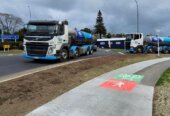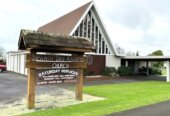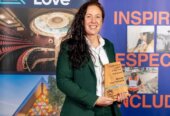Beef and dairy farmers don’t typically work together, but that will soon change if Bob Thomson gets his way.
Thomson, an Agfirst agribusiness consultant of 50 years’ experience, is leading a project he hopes will unleash dairy beef potential through partnerships between two quite different segments of the agricultural sector. One is geared towards producing beef, the other milk.
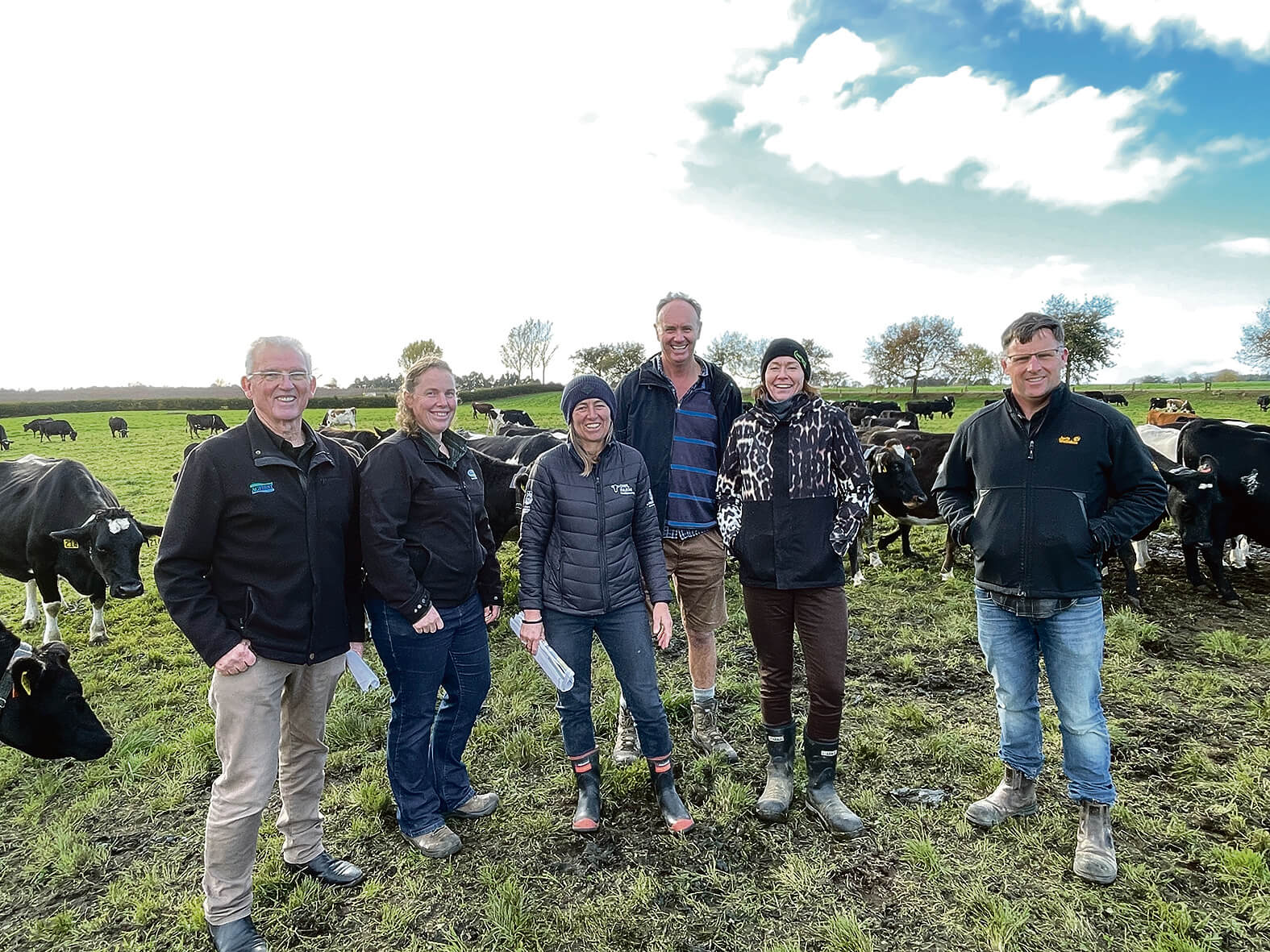
Agfirst agribusiness consultant Bob Thomson, Fonterra Farm Source’s Dr Rebecca Hickson, Owl Farm demonstration manager Jo Sheridan, farmer Jeremy Lee, WormWise programme manager Ginny Dodunski, Beef and Lamb director Phil Weir at the Owl Farm workshop.
“We’re proposing to put up a project to demonstrate how partnerships between dairy farmers and beef farmers can work,” Thomson said following a May 28 workshop at Owl Farm, Cambridge.
Owl Farm is a joint venture between St Peter’s School and Lincoln University that aims to demonstrate excellence in farm performance, share knowledge and provide opportunities for students.
Owl Farm cows are in the top three precent when it comes to breeding worth.
“They don’t need to mate all of their cows to dairy sire to generate the next crop of replacement calves, so they have cows available to mate to something else. Their calves could just be surplus, or they could be generated for a useful purpose,” Thomson said.
That purpose is joining the national beef herd.
“The timing is right for this, and the reason is we’ve now identified beef bulls that provide a real value proposition, a real good reason to establish a relationship that you can get these calves of these top sires back onto your farm for finishing as a beef breeder,” he said.
“Dairy farmers have got surplus calves. It’s not such a big deal now we can bobby a number. In the future we’re having to think about that might not be an option. So, if we can start working on solutions now, that would be a great thing.”
The project is relying on a decade’s worth of dairy beef progeny data collected from two 800 cow herds at Limestone Downs, Port Waikato, and Wairakei, Taupo.
Typically, beef farmers don’t collect the depth of data on their animals that dairy farmers do.
But this dairy beef progeny data set changes all that, including crucial birth weight, calving ease, gestation length and days to weaning data.
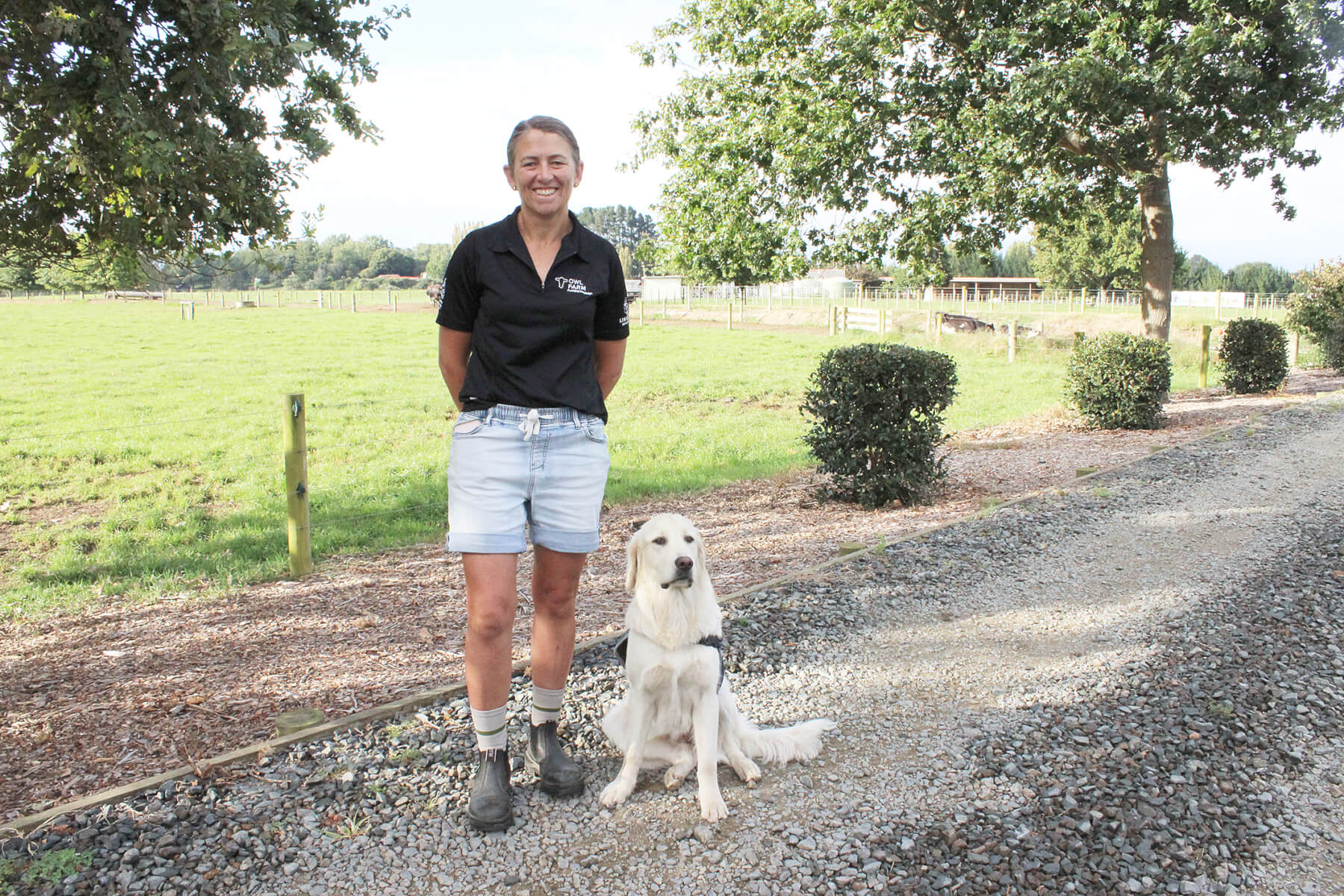
Owl Farm demonstration manager Jo Sheridan of Pirongia with farm hostess Emjay, a six-month-old labrador. Photo: Mary Anne Gill
“Information has not been collected and available like this before,” Thomson said. “This was a first. We’ve actually learned that not one breed has got a monopoly on good performance. There are a number of different breeds that have that.”
Thomson described it as a “win win situation” for both dairy and beef segments of the agricultural sector, one focused on milk solids production, the other on carcass weight.
“It’s real data giving them the confidence that they’re not dealing with estimations. They’re dealing with actual information.”
“With cattle from dairy farms making up fifty percent of all beef-finishing cattle in New Zealand it is imperative that we seek breeding solutions that meet dairy farmers objective of short gestation and easing calving and provide a high growth, excellent quality animal for the beef industry,” Owl Farm demonstration manager Jo Sheridan said:
“With the advances in technology to mate cows and the data coming from superior beef sires – we have the ability to improve productivity for both dairy and beef farmers by creating a high-quality dairy beef calf that adds value to everyone along the supply chain.”
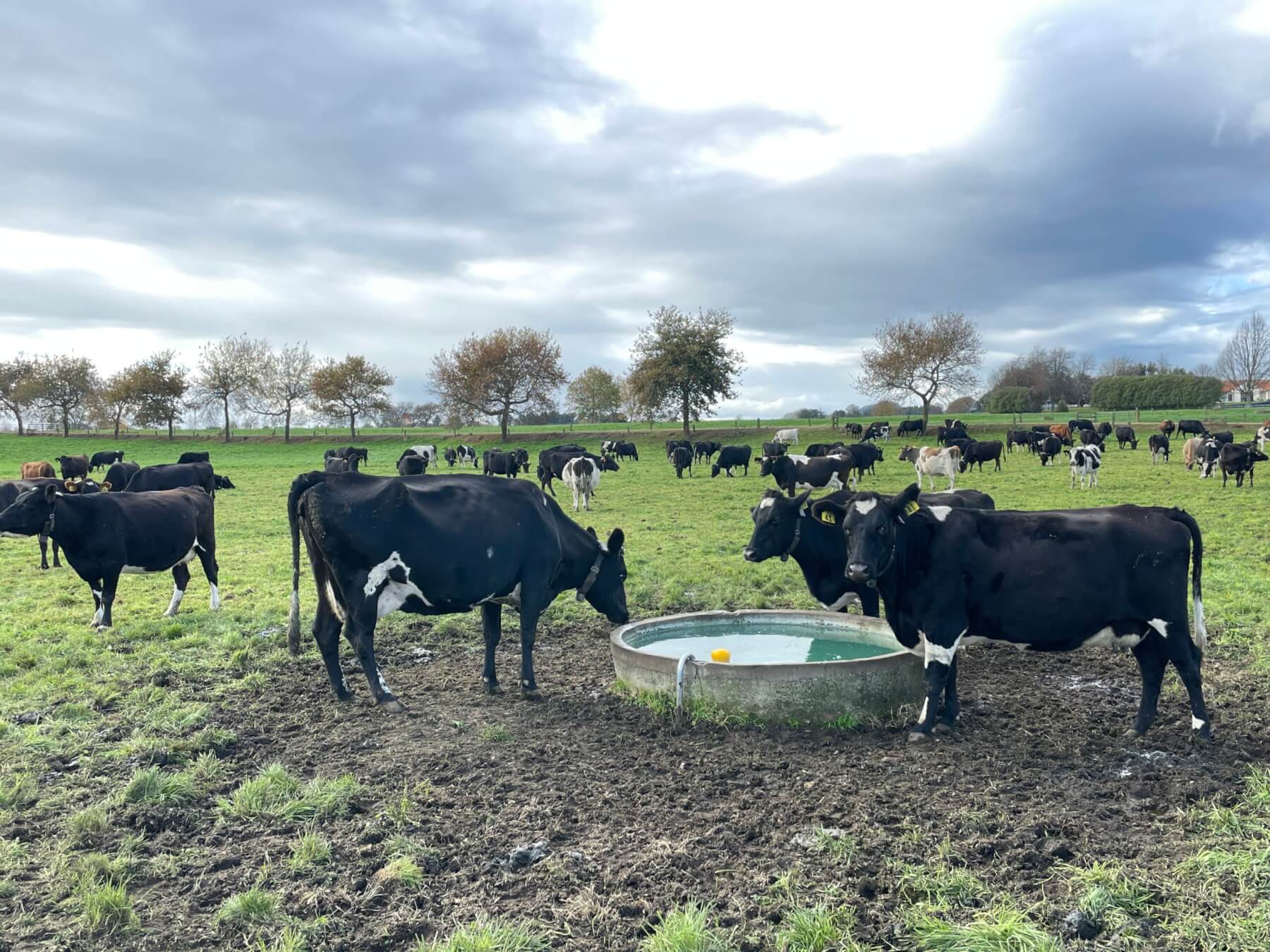
Dairy cows can provide a boost for the meat industry.






